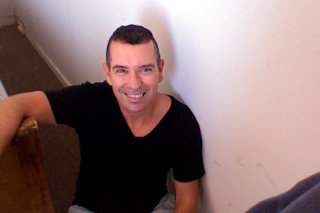In his debut novel, journalist Tomas Mournian didn’t have to venture far from his work for inspiration.
Inspired by Barbara Walters’ “20/20” report about gay teens sent to boot camps, Mournian researched and wrote an article for the San Francisco Bay Guardian about teens who escaped from abusive camps and found refuge in safehouses.
The article, “Hiding Out,” was syndicated internationally and inspired the creation of a short film, produced by George Michael and screened at Equality Rocks.
Mournian based “Hidden” on that article. The novel follows a group of LGBTQ teens struggling to resolve traumatic experiences and find physical and emotional sanctuary while living with a group of strangers until they turn 18.
Mournian said his research took two-and-a-half years.
“It was split between the safehouses and then I did a huge amount of academic research,” Mournian said. “I was really curious about knowing why this was happening. What’s the legal reason for this?”
Even though the struggles of LGBTQ youth have received a lot of mainstream press in the last year, Mournian said for the most part, gay teens — especially those who are homeless — still have it bad.
“Queer youth never stop being at risk,” he said. “Twenty percent of homeless youth are gay and they represent 5 percent of the population. Where the kids end up was really the focus of the novel. What happens once you’ve been through this process, whether you’ve been kicked out or put through reparative therapy? What happens to you now? What happens to you now is just as bad as it ever was.
“The government put out this thing called ‘The Critical Role of Family Support in LGBT Youth’ and the government is trying to intervene, but queer youth still don’t have any legal rights. They have no recourse to physical or verbal assault. In school, they don’t have any U.S. history that includes information about them like Harvey Milk or Kate Millett. They have no place to go if their family kicks them out. They’re not integrated into the adult LGBT community. I mean, they’re much discussed, but not part of the discussion. So I think that there are solutions that people are starting to put forth, but it remains to be seen if there are any benefits for queer youth.”
Mournian added that the issues LGBTQ youth face are complicated by a lack of understanding or the ability to properly address the problems on both sides.
“It’s challenging to straight people because when your kid is kicked out or ends up homeless on the street, that’s like your much-vaunted heterosexual parenting skills are a failure,” he said. “I think for the adult queer community, it’s challenging because there’s a sense of helplessness. Really, realistically, what are you supposed to do for a 12-year-old who is being bullied in Joshua Tree or the Inland Empire? There’s such a disconnection. Maybe by telling this story, people will see that things really suck for kids and can go really horribly wrong. I don’t know how much a novel can change the world. I’m optimistic but it remains to be seen. I think it’s important that these stories are told because queer youth are still invisible in gay culture and in the larger culture.”
Mournian will read from his novel at 5:30 p.m. Feb. 25 at Giovanni’s Room, 345 S. 12th St. For more information, call 215-923-2960.

